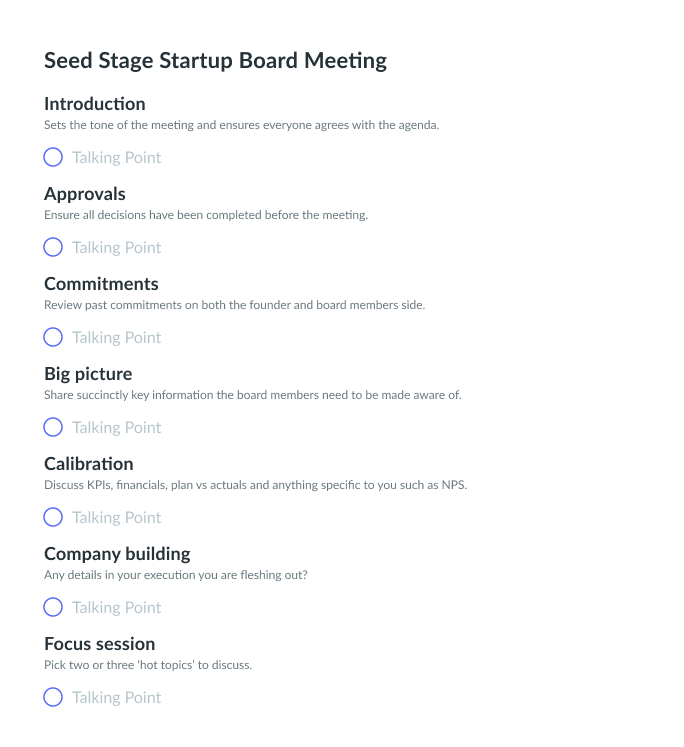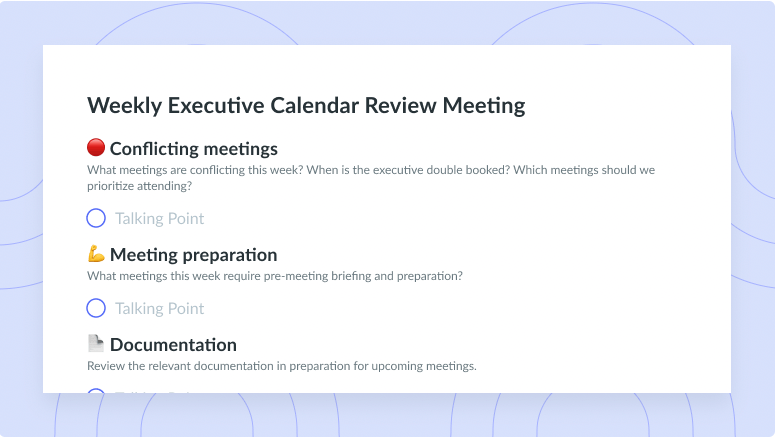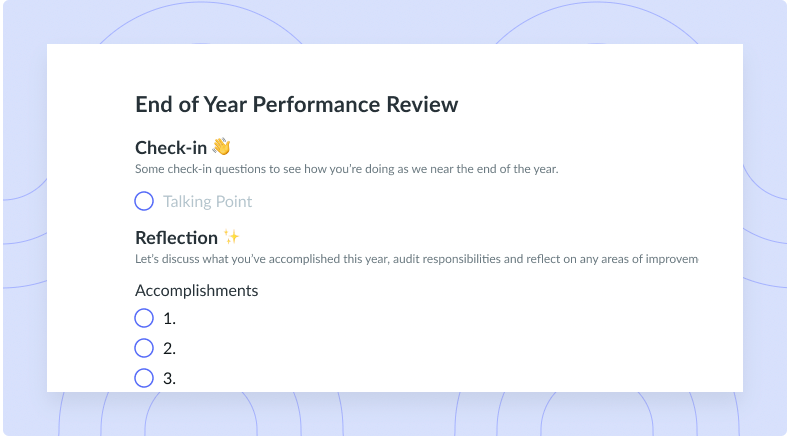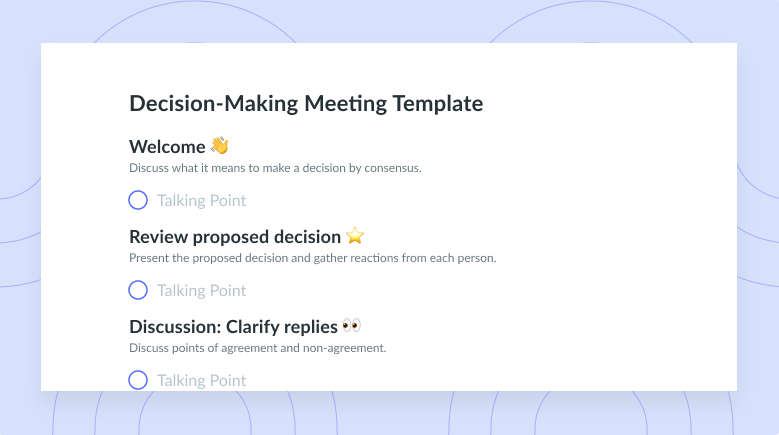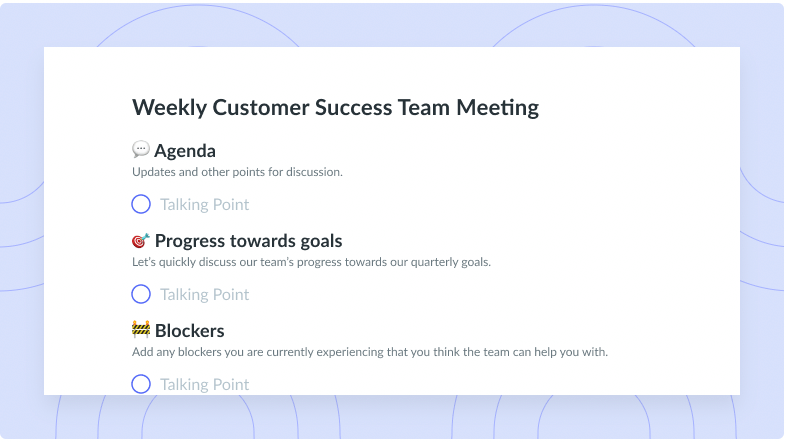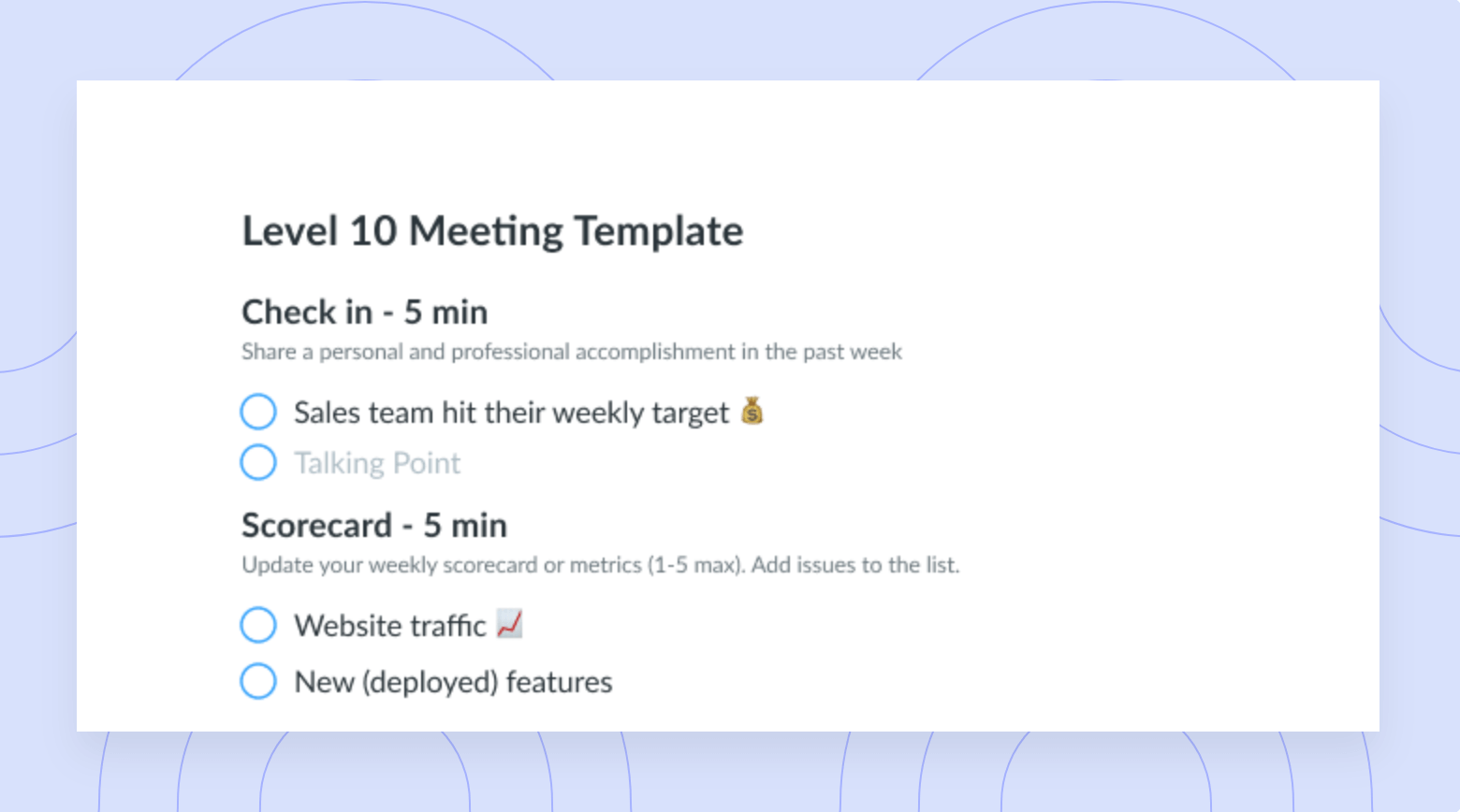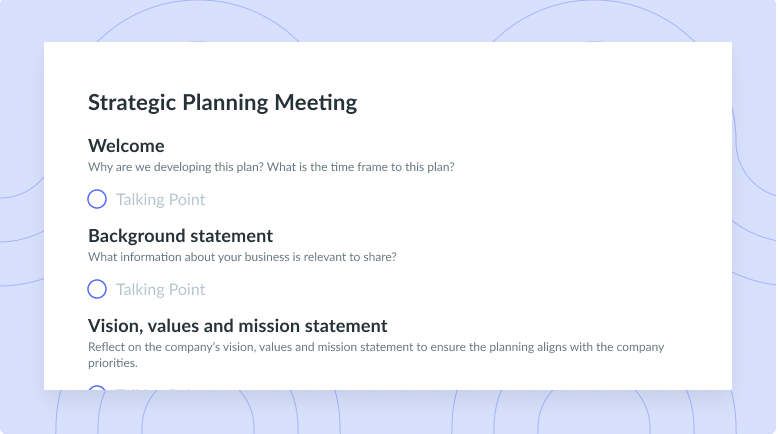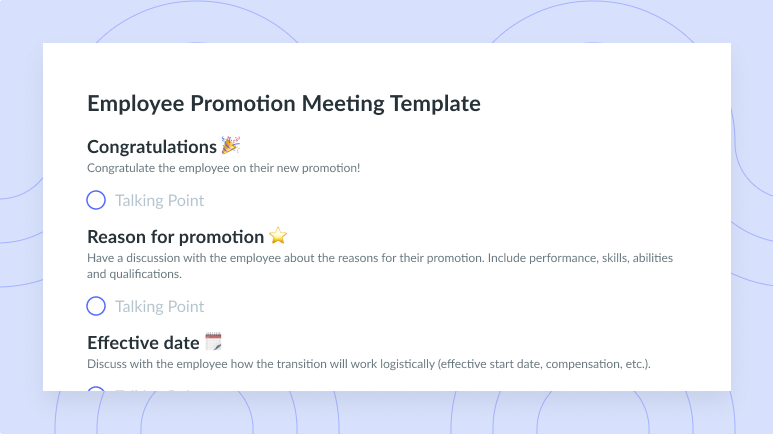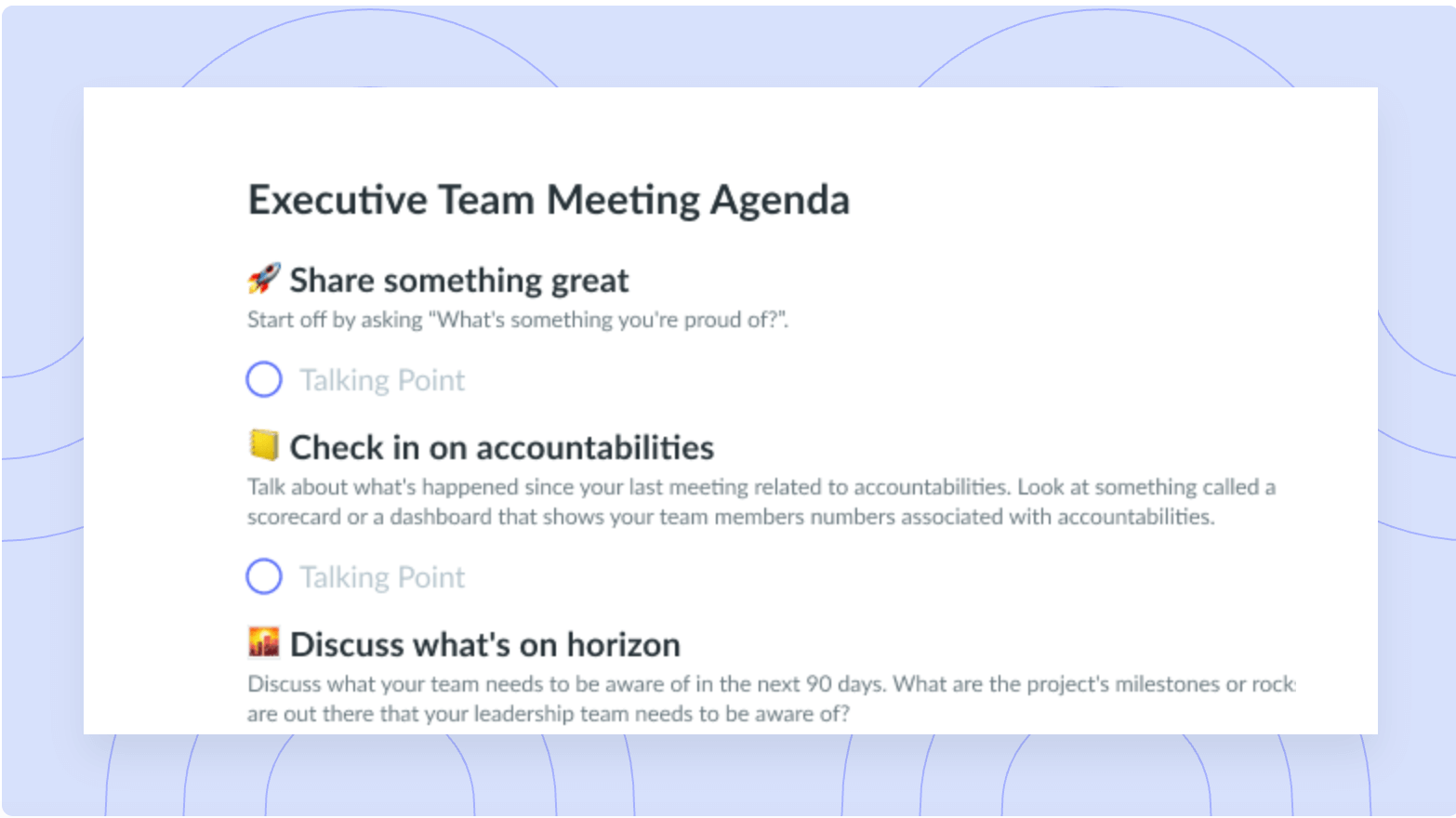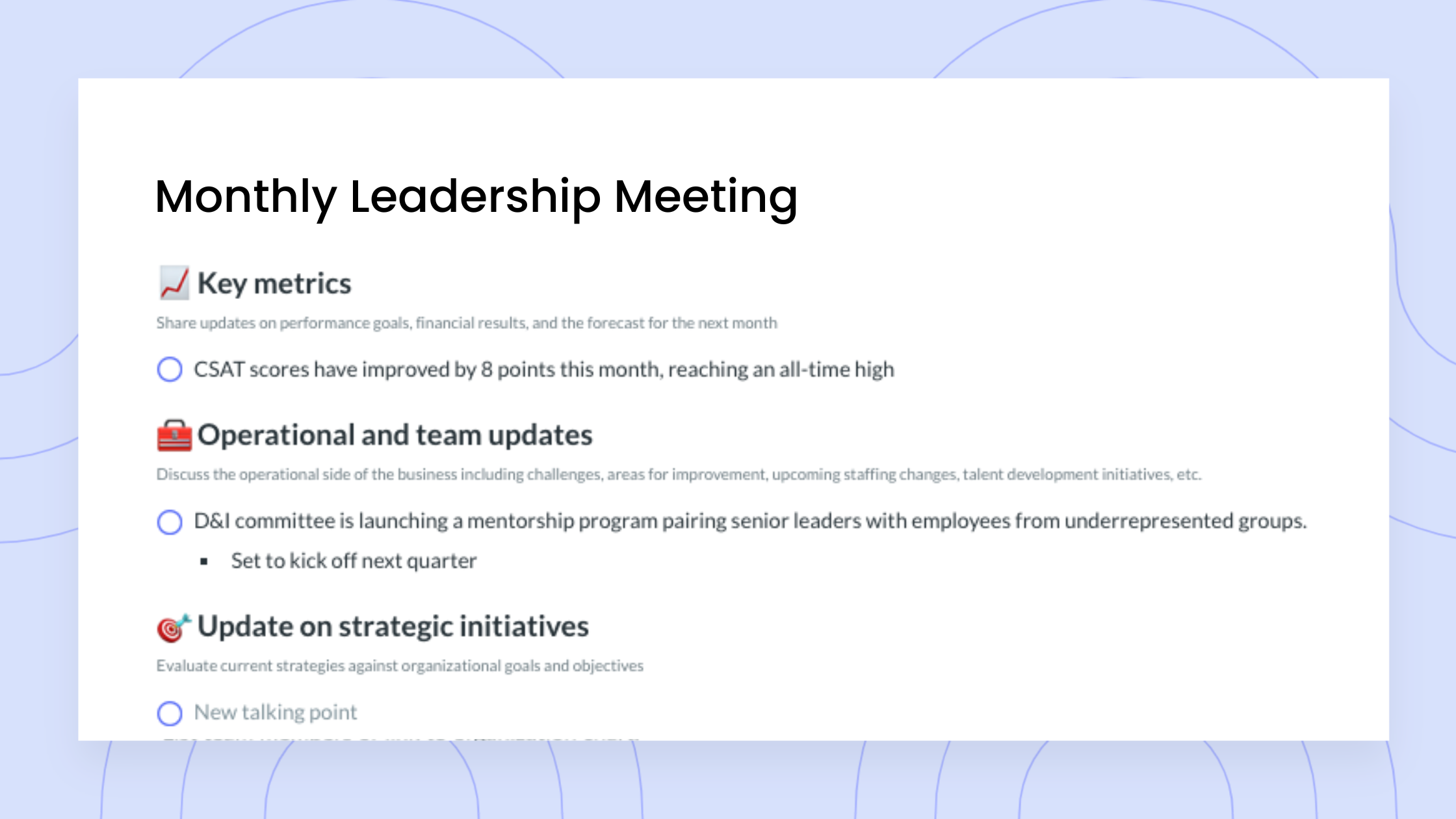
Seed Stage Startup Board Meeting Agenda Template
Get this templateWith this organized agenda, your startup board meeting can be an invaluable mechanism for making well-grounded decisions for the company’s future growth.


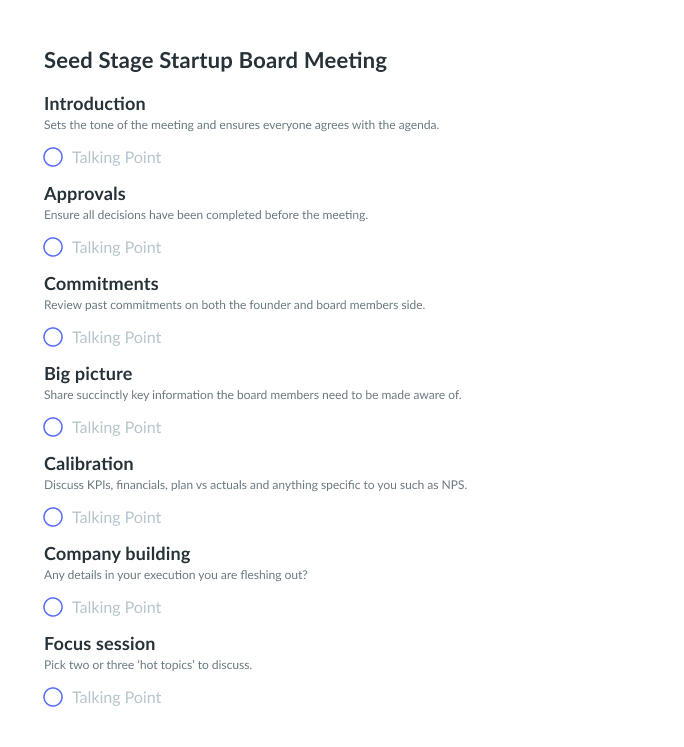

Seed Stage Startup Board Meeting Overview
“All glory comes from daring to begin.” – Eugene F. Ware.
The seed stage is a crucial part of the growth of any business. You have to nurture your company in the seed stage to encourage growth like a flower or a plant. The seed stage can absolutely feel overwhelming, with your goals looming before you, seeming further away than you’d like.
Don’t panic! Almost everyone in the history of launching a business has had these same feelings at one time or another. Seed funding can be more challenging to lock in than pre-seed funding, so routine meetings (once every week or bi-weekly) can really help with team organization.
In every stage of business development, it’s essential to keep your team members on the same page. However, that importance skyrockets when you’re attempting to determine valuation, develop a prototype, and catch the eye of investors.
Seed stage board meetings must include every team and board member, so if someone cannot be there in person, make sure they receive a virtual invite. If they can’t make it, you’ll want to record the meeting and send it their way, which you should do anyway to follow up on issues you may have forgotten.
Are you worried about providing critical information to your team and board members in a timely and organized manner? A good startup board meeting agenda will keep you on track!
How to Run an Effective Startup Board Meeting
A well-run startup board meeting begins with a startup meeting agenda. It’s crucial to walk into this meeting prepared to bring up essential talking points and answer any questions that might come to light. If your board meeting features potential outside investors, you’ll want to prepare to speak on topics like potential revenue and long-term goals in addition to weekly team matters.
Running a meeting like this comes down to preparation because they tend to cover a large amount of information in a brief period. Since startup meetings are held regularly in the seed phase of a business, most of your team members will show up ready to speak, listen, and brainstorm.
The seed stage means consistently testing your product for viability in a particular market, so there will always be plenty to discuss. It’s essential to leave ample time to conduct a startup meeting, as it’s better to wrap up under the allotted time than to go over. Remember, your team has work to do! This startup board meeting template will keep you from becoming sidelined.
“If you have a dream, you can spend a lifetime studying, planning, and getting ready for it. What you should be doing is getting started.” – Drew Houston, Dropbox Co-Founder, and CEO.
What’s inside Startup Board Meeting Agenda Template:
1 Intro
This sets the scene for the meeting and ensures everyone agrees with the agenda.
Begin your meeting with a short introduction, primarily if new people are in attendance. You can introduce yourself and your team, if necessary. Or, you can simply kick off the meeting by announcing your name and providing attendees with a quick overview of what to expect.
2 Approvals
Make sure all the decisions get done before the meeting gets into the swing of things.
If you’ve had any approvals since the last meeting, or you have to go over business developments that the board must approve, you’ll want to do that right after the introduction. Ask your team to prepare for this in advance, so the section runs smoothly and quickly.
3 Commitments
What people said they would do and did or did not. This is for both you the founder and your board members.
Discuss commitments for the upcoming week or two. What’s on the agenda? You can let your team and board know what’s happening regarding pitches and investor meetings. Events on the schedule that you’ve scheduled before your next board conference can and should take precedence here.
4Big Picture
Your board does not know what you know, so share succinctly the key things they need to be aware of.
Every seed startup board meeting should take it back to the big picture. Discuss why you’re there and your more tangible goals for the company. You’ve likely gone over this information a thousand times, but reiterating is good. Also, the big picture tends to change consistently over time, so bring everyone up to date with where it currently stands.
5Calibration
Adjust according to your business. You should most likely cover KPIs, financials, plan vs actuals and anything specific to you such as NPS.
Calibration typically pertains to bringing everyone up to speed or onto the same page. Focus on where you are now and where you want to be. Investors and board members tend to care more than you might think about the details that make your business different. Meetings like these can be intimidating, but they don’t have to be.
A great way to calibrate is to ask questions that encourage board and team members to participate in the conversation. It lets everyone know where different mentalities and outlooks stand.
6Company Building
This section details the nuts and bolts of how you are executing.
Ask everyone in attendance what you could do differently. What would make the product, services, or workflow better? What aspects might make the prototype more effective? What do they want to see from your company, and how do they think you can make it happen? Company building comes in many forms, but it won’t go anywhere without communication and teamwork.
7Focus Session
Pick 2, no more than 3, ‘hot topics’ you really want to dig into. Set out the topic and a few key thoughts for discussion points.
Wrap up every startup meeting with a good focus session. Allow time for some brainstorming and concentrate only on what might be your next move. Is it additional funding or a more advanced prototype? Whatever you come up with, ensure that you turn some pieces of that focus session into action items!

